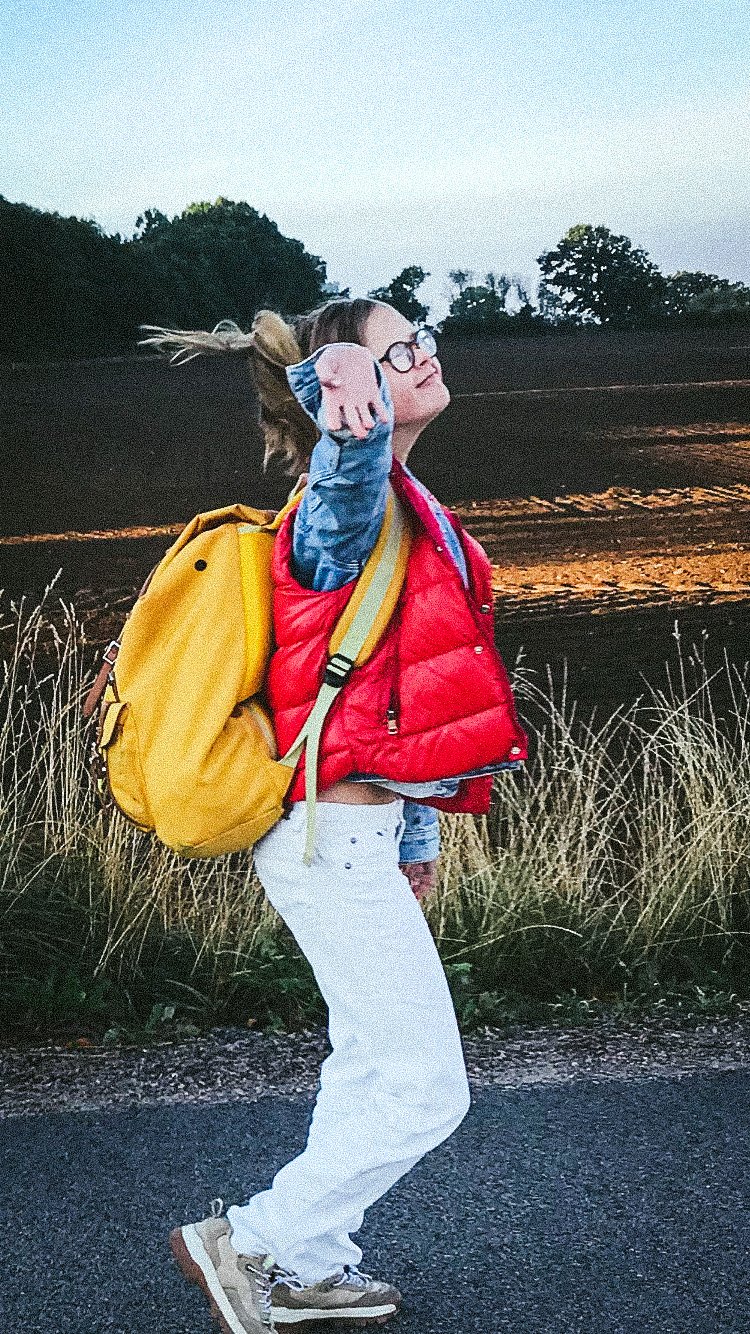Whipping a tired circus horse
When I found out that the trip with children was not going to be as I had imagined, I started a process in which to perhaps protect myself, the child and the rest of the family. For me, that meant seeing and finding out as much as possible about what a future for Doris with Down syndrome might look like. I watched movies, read books, listened to radio programs, etc. just to get a sense of the rocking earth beneath me. One of the things that made the most profound impression on me at the time was Tom Ahland's documentary series about Martina. Martina, who was born with Down's syndrome in 1968. She was therefore only 2 years older than me, which perhaps contributed to my being so affected. My references were chronologically the same as Martina's. Tom Ahland and Martina first met when Martina was 5 years old.
I watched the entire documentary series where Tom Ahland followed Martina's life and development. The series tells not only about Martina and her life but also about her family and I am deeply impressed by Martina's mother who fought for her daughter to be, as she said, human instead of developmentally disabled.
At one point in the first film, Tom Ahland interviewed a doctor who, I understood, said that there was no point in challenging Martina in above all learning and the doctor used the expression "to whip a tired circus horse". That Martina would learn to imitate but not understand! That it wasn't worth it! I was deeply provoked. I watched that clip again the other day, now 14 years later and compared it to what we as parents do to give Doris a chance to keep up as best as possible in a school where everything must be measurable and assessed. We have heard similar arguments from educators who work with our children today, where according to them it is about the impossibility of consolidating knowledge in children with Down syndrome. Here I directly dislike that generalization and resignation.
I mean that you have to see the child and not the diagnosis. Honestly, does anyone think that everything the educators teach is really reinforced in all students who are considered "normally disturbed" in all situations? I don't think so, but rather it is quite common to study hard to be able to deliver answers that are not confirmed.
We in Doris' network try to prepare and deal with all the questions and topics that will be raised in school, from different directions and angles, and I am convinced that this can be more or less about consolidating knowledge. You cannot sweep away the problem of "learning" through a "failure", but you must understand that even the small things that are reinforced make sense and are important. Knowledge is built up over time and, in my opinion, you cannot give up learning, because then we let the child down. I know this sounds obvious to most, but in reality we parents run into this ignorance frighteningly often.
Martina's doctor and the educators' approach of "whipping a tired circus horse" is certainly not out of meanness, but on the contrary they think this is to protect and nurture, but I wonder what decides that this would be the best way to go?
How can you so confidently exclude a group of people because of an extra chromosome by not offering as broad knowledge as possible and daring to challenge. Over the years, we have worked to be able to take part in what is to come in the school's teaching in good time so that we can prepare the current subject at home. In this way, we offer knowledge and the opportunity to create experiences with Doris. We try to bump, wet and angle the subject with everyone who comes in our vicinity. And the truth is, if the learning isn't consolidated this time, maybe it will be next time. The next time could be tomorrow or in two years. If we do not offer this, we have dissuaded and excluded both the person and faith in development.
One can think about what expectations we have of our children and why we set limits. What or who gives us adults the right to restrict certain children? I hope and believe that even we in the adult world are continuously growing and want to offer our children a more inclusive existence, but in some conversations I have my doubts.
If you haven't seen Tom Ahland's fantastic documentary series about Martina, do so.


